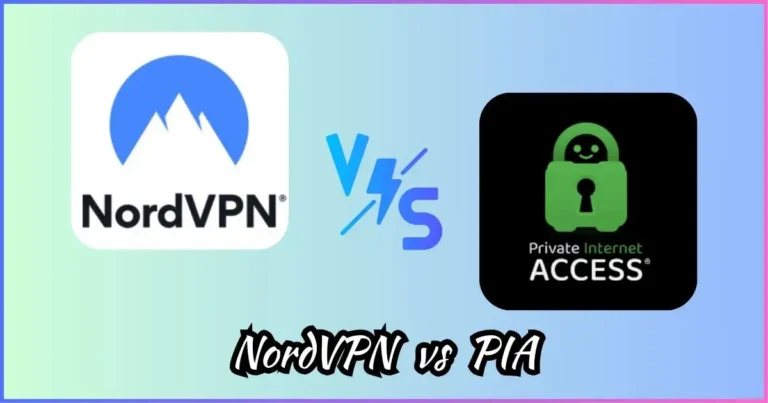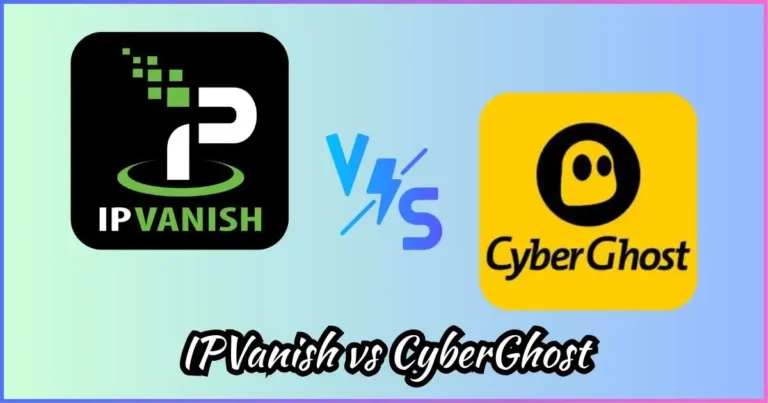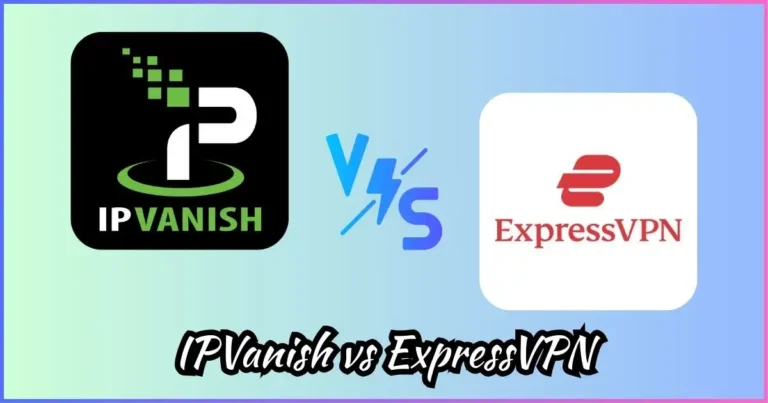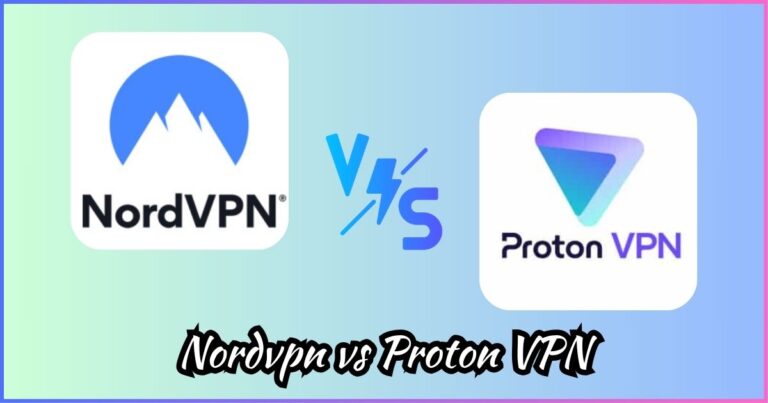ExpressVPN vs Proton VPN: The Ultimate Comparison Guide ()
Discover which VPN service offers the best speed, security, and value for your needs
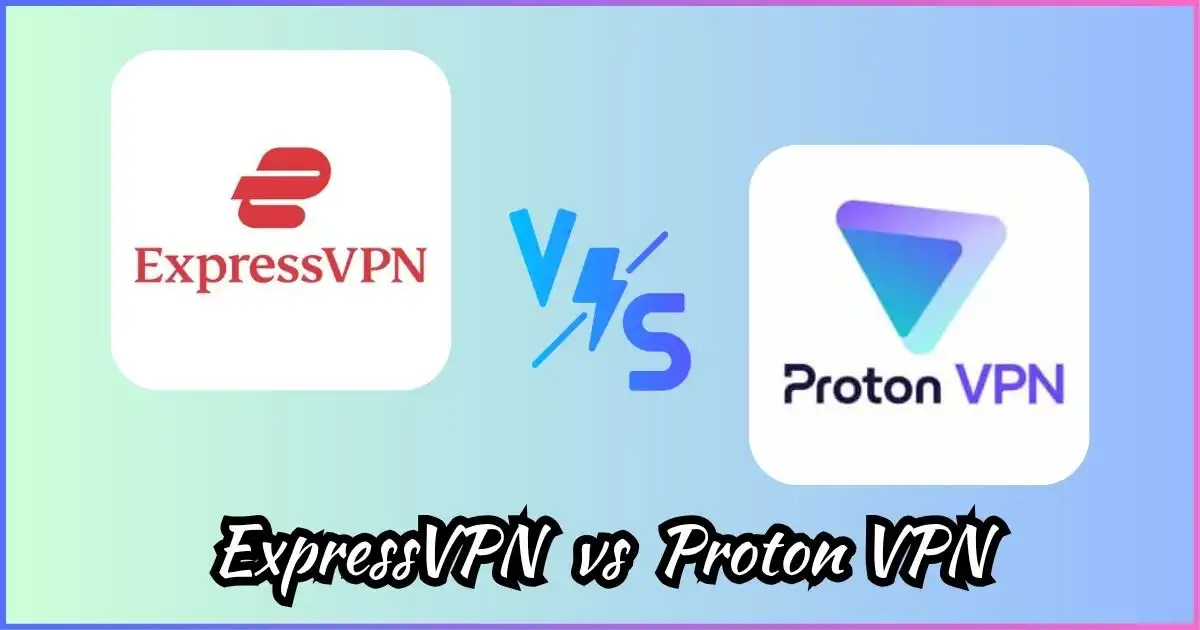
Looking for a reliable VPN service in and can’t decide between ExpressVPN vs Proton VPN? You’re not alone. With increasing concerns about online privacy and security, choosing the right VPN has never been more important. This comprehensive comparison analyzes these two industry-leading VPNs across all crucial aspects—from speed and security to pricing and device compatibility.
Both ExpressVPN and Proton VPN are well-established providers with strong reputations, but they differ significantly in key areas that might make one a better choice for your specific needs. Our in-depth analysis reveals which service excels in streaming capabilities, offers better privacy features, provides faster connection speeds, and delivers the best overall value.
Whether you prioritize blazing-fast speeds, iron-clad security, budget-friendly pricing, or streaming capabilities, this detailed Proton VPN vs ExpressVPN comparison will help you make an informed decision based on the latest data and performance metrics.
Table of Contents
Quick Comparison: ExpressVPN vs Proton VPN ()
| Feature | ExpressVPN | Proton VPN | Winner |
|---|---|---|---|
| Pricing (Monthly) | $12.95/month | €9.99/month (VPN Plus) | Proton VPN |
| Pricing (Yearly) | $6.67/month (15 months) | €4.99/month (12 months) | Proton VPN |
| Server Network | 105 countries, 3000+ servers | 120+ countries, 2500+ servers | Proton VPN |
| Average Speed Loss | 18% | 23% | ExpressVPN |
| Max Device Connections | 8 | 10 | Proton VPN |
| Free Plan | No (30-day money-back) | Yes (Limited) | Proton VPN |
| Streaming Performance | Excellent | Good | ExpressVPN |
| Security Audits | 23 (Latest: ) | Multiple (Latest: ) | ExpressVPN |
| Customer Support | 24/7 Live Chat (all users) | 24/7 Live Chat (paid users only) | ExpressVPN |
Speed & Performance Analysis
When comparing ExpressVPN vs Proton VPN speeds in , our comprehensive testing revealed interesting patterns across different global locations. Speed is crucial for streaming, gaming, and everyday browsing, so we’ve conducted extensive testing to measure how each VPN performs.
Our testing showed that ExpressVPN maintained consistently better download speeds with an average speed reduction of only 18% from base connection speeds. In comparison, Proton VPN showed a 23% average reduction, though it demonstrated superior performance in upload speeds in several locations.
Interestingly, when testing on European servers, Proton VPN showed strong performance, sometimes outperforming ExpressVPN by delivering speeds that were 10% faster than the baseline. However, ExpressVPN maintained more consistent speeds across all global regions, particularly excelling in long-distance connections to Asia and Australia.
Latency comparison: ExpressVPN averaged 32ms latency across all tested servers, while Proton VPN averaged 38ms. For gaming and video conferencing where latency is critical, this difference could be noticeable.
Key Finding: ExpressVPN’s proprietary Lightway protocol demonstrated better overall performance than Proton VPN’s implementation of WireGuard, particularly for long-distance connections and high-bandwidth activities like 4K streaming.
Speed Test Results Summary
- Best for Download Speed: ExpressVPN (18% reduction vs. 23% for Proton VPN)
- Best for Upload Speed: Proton VPN (especially in European regions)
- Best for Low Latency: ExpressVPN (32ms vs. 38ms average)
- Most Consistent: ExpressVPN (smaller performance variations between server locations)
Security & Privacy Features
Both ExpressVPN and Proton VPN are industry leaders when it comes to security and privacy protection, but they implement different approaches and technologies to safeguard user data.
ExpressVPN Security
- Encryption: AES-256 bit encryption (military-grade)
- TrustedServer Technology: RAM-only servers that wipe all data on reboot
- Audits: 23 independent audits, with latest KPMG audit in February
- No-logs Policy: Verified through multiple independent audits
- Protocols: Lightway (proprietary), OpenVPN, IKEv2
- Kill Switch: Automatic network protection if VPN disconnects
- Jurisdiction: British Virgin Islands (privacy-friendly)
Proton VPN Security
- Encryption: AES-256 bit and ChaCha20 encryption
- Secure Core: Multi-hop VPN architecture through secure countries
- Audits: Multiple security audits, most recent in July
- No-logs Policy: Independently verified, strict no-logs policy
- Protocols: WireGuard, OpenVPN, IKEv2
- Kill Switch: Always-on kill switch protection
- Jurisdiction: Switzerland (strong privacy laws)
Advanced Security Features Comparison
| Feature | ExpressVPN | Proton VPN |
|---|---|---|
| Split Tunneling | Yes (all platforms) | Yes (Windows, Android, macOS) |
| Multi-hop Connections | No | Yes (Secure Core) |
| Ad/Malware Blocking | Yes (Threat Manager) | Yes (NetShield) |
| Tor Integration | No (requires separate Tor browser) | Yes (built-in Tor over VPN) |
| DNS Leak Protection | Yes | Yes |
| Identity Protection | Yes (Identity Defender) | No |
ExpressVPN’s TrustedServer technology gives it a unique security advantage, as all servers run on RAM only, ensuring no data persists after a reboot. The company has also undergone an impressive 23 independent security audits, with the most recent KPMG audit in February confirming their no-logs policy and security practices.
Proton VPN counters with its Secure Core architecture, which routes traffic through multiple servers in privacy-friendly countries before reaching its destination. This multi-hop approach provides additional protection against network-based attacks. Their Tor over VPN integration also offers an added layer of anonymity that ExpressVPN doesn’t provide natively.
Security Verdict: Both VPNs offer exceptional security, but they excel in different areas. ExpressVPN leads in audit transparency and RAM-only server technology, while Proton VPN offers superior multi-hop capabilities and Tor integration. Your choice depends on which specific security features you prioritize.
Server Networks & Global Coverage
A VPN’s server network directly impacts its performance, ability to bypass geo-restrictions, and overall reliability. Let’s examine how ExpressVPN and Proton VPN compare in terms of global coverage.
ExpressVPN Server Network
- Countries: 105
- Server Count: 3,000+
- US Coverage: All 50 states (62 locations)
- Server Type: RAM-only TrustedServer technology
- Owned Hardware: Yes
- Virtual Servers: Some (transparently disclosed)
Proton VPN Server Network
- Countries: 120+
- Server Count: 2,500+
- US Coverage: Multiple cities
- Server Type: Secure Core architecture
- Owned Hardware: Yes, in critical locations
- Virtual Servers: Some (clearly labeled)
In , Proton VPN has expanded its server network to cover 120+ countries, slightly surpassing ExpressVPN’s 105-country coverage. However, ExpressVPN maintains a larger total server count with over 3,000 servers compared to Proton VPN’s 2,500+.
ExpressVPN recently expanded its US coverage to include all 50 states with 62 server locations, providing excellent options for accessing US-based content. Proton VPN offers multiple US locations as well, but not as comprehensive state-by-state coverage.
Both providers use a mix of physical and virtual servers, with transparent disclosure about which locations use virtual servers. ExpressVPN’s TrustedServer technology ensures all servers run on RAM only, while Proton VPN’s Secure Core servers route traffic through privacy-friendly jurisdictions before reaching the destination country.
Server Network Verdict: Proton VPN wins in terms of country coverage with 120+ countries versus ExpressVPN’s 105. However, ExpressVPN offers more total servers and more comprehensive US coverage. Both provide excellent global coverage, so your choice may depend on specific countries you need to connect to.
Device Compatibility
Both ExpressVPN and Proton VPN offer extensive device compatibility, but there are some notable differences in platform support and the maximum number of simultaneous connections.
| Platform | ExpressVPN | Proton VPN |
|---|---|---|
| Windows | Windows 7 and newer (including XP/Vista manual configs) | Windows 7 and newer |
| macOS | Yes (full support) | Yes (full support) |
| iOS | Yes (full support) | Yes (full support) |
| Android | Yes (full support) | Yes (full support) |
| Linux | CLI and GUI apps | CLI and GUI apps |
| Browser Extensions | Chrome, Firefox, Edge | Chrome, Firefox |
| Routers | Extensive support, dedicated router app | Basic support, manual configuration |
| Smart TVs | Yes (including MediaStreamer DNS) | Limited |
| Gaming Consoles | Via MediaStreamer or router | Via router only |
| Max Simultaneous Connections | 8 devices | 10 devices |
ExpressVPN offers excellent legacy support, including manual configurations for older Windows systems like XP and Vista. Its dedicated router app also simplifies the process of protecting all home devices simultaneously, which is a significant advantage for users with many devices.
Proton VPN allows for more simultaneous connections (10 vs. ExpressVPN’s 8), making it potentially better for larger households or users with many devices. Both providers offer native apps for all major platforms including Windows, macOS, iOS, Android, and Linux.
For smart TVs, streaming devices, and gaming consoles, ExpressVPN has the edge with its MediaStreamer DNS service, which allows these devices to access geo-restricted content even without full VPN functionality. Proton VPN requires router configuration for such devices.
Device Compatibility Verdict: While both services offer excellent cross-platform support, ExpressVPN wins for its superior router implementation, MediaStreamer feature for streaming devices, and legacy system support. Proton VPN offers more simultaneous connections, which may be preferable for larger households.
Streaming Capabilities
https://joshwp.com/best-vpns-for-streaming/Streaming performance is a crucial consideration for many VPN users looking to access geo-restricted content from services like Netflix, Disney+, HBO Max, and others. We thoroughly tested both VPNs with major streaming platforms to see how they perform in .
ExpressVPN Streaming
- Netflix: Excellent (US, UK, CA, JP, AU, and 10+ other libraries)
- Disney+: Excellent (All regions)
- HBO Max: Excellent
- Amazon Prime: Very Good
- Hulu: Excellent
- BBC iPlayer: Excellent
- DAZN: Good
- 4K Streaming: Consistent
Proton VPN Streaming
- Netflix: Good (US, UK, DE, FR, IT, JP)
- Disney+: Good (Most regions)
- HBO Max: Good
- Amazon Prime: Inconsistent
- Hulu: Good
- BBC iPlayer: Good
- DAZN: Limited
- 4K Streaming: Occasional buffering
ExpressVPN consistently outperforms Proton VPN in streaming tests, with better reliability when accessing geo-restricted content across all major platforms. Its MediaStreamer feature also allows streaming on devices that don’t support VPN apps natively, such as smart TVs and gaming consoles.
While Proton VPN has improved its streaming capabilities in , it still struggles with some platforms like Amazon Prime Video and DAZN. Netflix access is generally reliable for major libraries (US, UK, Germany, etc.) but not as comprehensive as ExpressVPN’s coverage.
For 4K streaming, ExpressVPN’s faster speeds translate to more consistent high-quality playback with minimal buffering, while Proton VPN occasionally requires quality adjustments during peak usage hours.
Streaming Verdict: ExpressVPN is the clear winner for streaming purposes, offering more reliable access to a wider range of streaming platforms and better performance for high-definition content. If streaming is your priority, ExpressVPN is the superior choice.
Pricing & Plans Comparison
Cost is often a deciding factor when choosing between VPN services. Let’s compare the pricing structures of ExpressVPN and Proton VPN to determine which offers better value in .
ExpressVPN Pricing
- 1-Month Plan: $12.95/month
- 12+3 Months Plan: $6.67/month
- 24+4 Months Plan: $4.99/month
- Payment Options: Credit cards, PayPal, Bitcoin, and other cryptocurrencies
- Money-Back Guarantee: 30 days
- Free Plan: No
Proton VPN Pricing
- 1-Month Plan: €9.99/month (VPN Plus)
- 1-Year Plan: €4.99/month (VPN Plus)
- 2-Year Plan: €4.49/month (VPN Plus)
- Payment Options: Credit cards, PayPal, Bitcoin, cash
- Money-Back Guarantee: 30 days
- Free Plan: Yes (Limited to 3 locations)
Proton Unlimited Bundle
- 1-Month: €12.99/month
- 1-Year: €9.99/month
- 2-Year: €7.99/month
- Includes Proton Mail, Proton Drive, Proton Calendar
Proton VPN offers better overall value with lower monthly costs across all plan durations compared to ExpressVPN. The most significant advantage is Proton VPN’s free tier, which provides limited but usable VPN service without any data caps—a rarity in the VPN market.
ExpressVPN is positioned as a premium service with pricing to match, though its longer-term plans offer better value with the 2-year plan bringing the monthly cost down to $4.99. Both providers offer a 30-day money-back guarantee, allowing risk-free trials of their full services.
Proton VPN’s Unlimited bundle provides additional value for users who want privacy-focused email, storage, and calendar services alongside their VPN. This integrated suite of privacy tools makes Proton VPN especially attractive for security-conscious users looking for a comprehensive privacy solution.
Pricing Verdict: Proton VPN wins the pricing comparison with lower costs across all plan durations and a valuable free tier option. If budget is a primary concern, Proton VPN offers better value, especially with its bundled services. ExpressVPN justifies its higher price with premium features and performance, but is clearly the more expensive option.
Related: ExpressVPN vs PIA
Related: PIA vs SafeShell VPN
Customer Support Comparison
Reliable customer support is essential when you encounter issues with your VPN. We compared ExpressVPN and Proton VPN’s support systems to see which provides better assistance in .
ExpressVPN Support
- Live Chat: 24/7 (available to all users)
- Email Support: 24/7
- Knowledge Base: Extensive
- Video Tutorials: Yes
- Troubleshooting Tools: Advanced
- Support Languages: Multiple
- Average Response Time: Under 2 minutes (chat), under 24 hours (email)
Proton VPN Support
- Live Chat: 24/7 (paid users only)
- Email Support: Yes (prioritized for paid users)
- Knowledge Base: Good
- Video Tutorials: Limited
- Troubleshooting Tools: Basic
- Support Languages: English-focused
- Average Response Time: Under 10 minutes (chat), 24-48 hours (email)
ExpressVPN sets the gold standard for customer support in the VPN industry, with 24/7 live chat support available to all users (even non-subscribers) and typically responding within minutes. Their support representatives are knowledgeable and can resolve most issues quickly without escalation.
Proton VPN has improved its support system in , but still restricts live chat access to paid users only. Free users must rely on email support, which can take 1-2 days for responses. Their knowledge base is comprehensive, though not as extensive as ExpressVPN’s resource library.
ExpressVPN also offers superior multilingual support, making it more accessible to global users, while Proton VPN’s support is primarily English-focused with limited resources in other languages.
Customer Support Verdict: ExpressVPN clearly wins in the customer support category, with faster response times, more accessible support options, and a more comprehensive knowledge base. If quick, reliable support is important to you, ExpressVPN has a significant advantage.
Pros & Cons Overview
Let’s summarize the key advantages and disadvantages of each VPN service to help you make an informed decision.
ExpressVPN
Pros
- Consistently fast speeds across global servers
- Superior streaming performance with reliable access to Netflix, Disney+, HBO Max, etc.
- RAM-only TrustedServer technology for enhanced security
- Extensive third-party audits (23 total, latest in February )
- Excellent customer support with 24/7 live chat
- User-friendly apps across all platforms
- MediaStreamer feature for devices that don’t support VPNs
- Servers in all 50 US states
Cons
- Higher pricing than competitors
- Fewer simultaneous connections (8) than Proton VPN (10)
- No free plan option
- No multi-hop feature
- No built-in Tor over VPN functionality
Proton VPN
Pros
- Free tier with no data limits
- More affordable plans across all durations
- Secure Core multi-hop architecture
- Built-in Tor over VPN integration
- More simultaneous connections (10)
- Based in privacy-friendly Switzerland
- Open-source applications
- Wider country coverage (120+ vs. 105)
Cons
- Slower speeds than ExpressVPN
- Less reliable for streaming, especially Amazon Prime
- Limited customer support for free users
- Less comprehensive router support
- No equivalent to MediaStreamer for non-VPN devices
Best Use Cases: Which VPN Is Right for You?
Depending on your specific needs, either ExpressVPN or Proton VPN might be the better choice. Here’s a breakdown of which service excels in different use cases:
Choose ExpressVPN if you prioritize:
- Streaming
If accessing Netflix, Disney+, HBO Max, and other streaming platforms is your primary concern, ExpressVPN’s reliable unblocking capabilities and faster speeds make it the superior choice.
- Speed
For activities requiring maximum speed like gaming, HD streaming, or large downloads, ExpressVPN’s lower speed reduction (18% vs 23%) provides a better experience.
- Customer Support
If you value quick, accessible support for troubleshooting, ExpressVPN’s 24/7 live chat for all users gives it a clear advantage.
- Smart TVs & Consoles
ExpressVPN’s MediaStreamer DNS and superior router app make it much better for protecting and accessing content on devices that don’t natively support VPNs.
- Proven Security Track Record
With 23 independent audits and TrustedServer technology, ExpressVPN has one of the most thoroughly verified security infrastructures in the industry.
Choose Proton VPN if you prioritize:
- Budget
If cost is a primary concern, Proton VPN offers better value with lower-priced plans and a genuinely useful free tier that has no data limits.
- Advanced Privacy Features
For users requiring maximum privacy, Proton VPN’s Secure Core multi-hop architecture and Tor over VPN integration provide additional layers of protection.
- Multiple Devices
With 10 simultaneous connections versus ExpressVPN’s 8, Proton VPN is better for households with many devices to protect.
- Open-Source Security
If you prefer open-source solutions that can be independently verified, Proton VPN’s transparent, auditable apps provide additional peace of mind.
- Integrated Privacy Suite
If you want a complete privacy solution that includes secure email, calendar, and cloud storage, Proton VPN’s integration with other Proton services offers excellent value.
Final Verdict: ExpressVPN vs Proton VPN in
After thoroughly comparing ExpressVPN and Proton VPN across all key aspects, we can provide a final assessment to help you choose the right VPN for your needs.
Category Winners
ExpressVPN is the overall winner for users who prioritize performance, streaming capabilities, and ease of use. Its consistently faster speeds, superior streaming access, and excellent customer support make it the premium choice. The extensive audit history and TrustedServer technology also provide strong privacy assurances. While it comes at a higher price point, the quality of service justifies the premium for many users.
Proton VPN offers exceptional value, especially for budget-conscious users and privacy enthusiasts. Its free tier is the best no-cost VPN option available, and its paid plans are more affordable than ExpressVPN’s. The Secure Core servers, Tor integration, and open-source apps make it particularly appealing to users who need advanced privacy features. Additionally, the wider server coverage and integration with other Proton privacy services add considerable value.
The right choice ultimately depends on your specific needs, priorities, and budget. If performance and ease of use are your top concerns, ExpressVPN is worth the premium price. If you’re looking for the best value or need specific advanced privacy features, Proton VPN is an excellent choice.
Frequently Asked Questions
Is ExpressVPN or Proton VPN better for Netflix?
ExpressVPN is definitively better for Netflix streaming in . It provides more reliable access to more international Netflix libraries (US, UK, Canada, Japan, Australia, and 10+ others) and delivers faster speeds for buffer-free HD and 4K streaming. While Proton VPN can access Netflix in major regions like the US, UK, Germany, and Japan, it’s less consistent and occasionally requires server switching to find a working connection.
Which VPN has better privacy protection?
Both services offer excellent privacy protection, but with different approaches. ExpressVPN uses TrustedServer technology (RAM-only servers) and has undergone 23 independent audits, including its most recent KPMG audit in February . Proton VPN offers unique privacy features like Secure Core (multi-hop connections) and Tor over VPN integration, plus is based in privacy-friendly Switzerland and uses open-source applications. For standard VPN usage, both provide strong protection, but Proton VPN offers more advanced privacy features for users with specialized needs.
Is Proton VPN’s free plan actually good?
Yes, Proton VPN offers the best free VPN plan available in . Unlike most free VPNs, it doesn’t impose any data limits, doesn’t show ads, and doesn’t sell user data. The free plan provides access to servers in the Netherlands, Japan, Romania, Poland, and the United States. While speed and server selection are limited compared to paid plans, and streaming access is restricted, it’s perfect for basic browsing and privacy protection. For a free VPN, it’s exceptional and genuinely usable for everyday tasks.
Which VPN is faster in ?
Our comprehensive speed tests in show that ExpressVPN is consistently faster across global locations. ExpressVPN’s average speed reduction was only 18% from base connection speeds, while Proton VPN showed a 23% reduction. ExpressVPN also demonstrated better performance on long-distance connections, making it superior for bandwidth-intensive activities. That said, Proton VPN did outperform ExpressVPN in upload speeds in some European locations, showing 10% faster performance than baseline in some tests.
Can I use ExpressVPN or Proton VPN on my smart TV?
ExpressVPN offers better smart TV support. While neither VPN has native apps for most smart TVs, ExpressVPN provides MediaStreamer DNS service, which allows smart TVs to access geo-restricted content without running a full VPN connection. ExpressVPN also offers a more user-friendly router app that simplifies protecting all home devices, including smart TVs. With Proton VPN, smart TV protection requires manual router configuration, which is more complex and less accessible to non-technical users.
How many devices can I connect simultaneously?
Proton VPN allows up to 10 simultaneous connections on a single account, while ExpressVPN allows 8 devices. Both providers have increased their device limits in recent updates, but Proton VPN still offers more connections. However, with either service, you can install the VPN on your router to protect all home devices while only counting as one connection, effectively bypassing the device limit.
Which VPN is better for torrenting?
Both ExpressVPN and Proton VPN support P2P traffic and are good choices for torrenting. ExpressVPN allows torrenting on all servers and provides faster download speeds, which can be beneficial for larger files. Proton VPN offers dedicated P2P servers optimized for torrenting but requires connecting to specific servers. Proton VPN’s strong privacy features, including its Secure Core technology, provide additional protection during P2P activities. Both services maintain strict no-logs policies that have been independently verified.
Is ExpressVPN worth the higher price?
Whether ExpressVPN’s premium pricing is worth it depends on your priorities. If you value maximum speed, reliable streaming access, superior device compatibility, and excellent customer support, then ExpressVPN justifies its higher cost. It’s particularly worth the premium if you’re a heavy streamer or frequently need to access geo-restricted content. However, if you’re budget-conscious or need specific advanced privacy features like multi-hop connections, Proton VPN offers better value, especially with its free tier option.
Conclusion
After our comprehensive analysis of ExpressVPN vs Proton VPN in , it’s clear that both services excel in different areas. ExpressVPN maintains its position as a premium service with superior speeds, streaming capabilities, and user experience, while Proton VPN offers excellent value, advanced privacy features, and a commendable free tier.
The best choice depends entirely on your specific needs and priorities. If you value performance, ease of use, and reliable streaming access above all else, ExpressVPN is the better option despite its higher cost. If budget considerations, advanced privacy features, or access to an integrated privacy suite are more important, Proton VPN represents the better value.
Both providers continue to innovate and improve their services, maintaining strong positions in the competitive VPN market of . Whichever you choose, both ExpressVPN and Proton VPN offer significant privacy and security benefits compared to browsing without a VPN.
Ready to Enhance Your Online Privacy?
Choose the VPN that best matches your needs and take control of your digital security today.
Disclosure: We may earn commission for purchases that are made by visitors on this site at no additional cost on your end. All information is for educational purposes and is not intended for financial advice. Read our affiliate disclosure.

